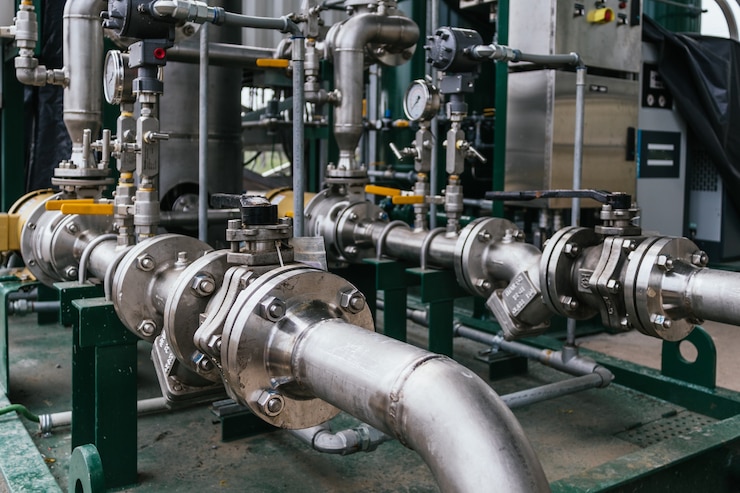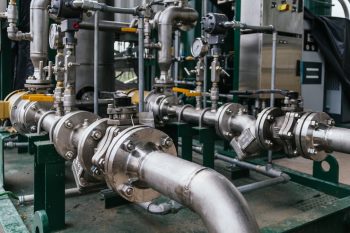
Image Source: Freepik
It is quite overwhelming to choose the best valve for your needs, especially with the vast array of choices in the ball valve category alone. Below are details to aid your decision.
Gas Lever Valve
Gas lever valves are actually essentially ball valves, the lever refers to the external control mechanism with which the valve can be toggled open and close. Much like other valves, its primary function is to control the flow of materials like natural gas, liquified petroleum, oxygen, and others. Levers are favored for their ease of grip and straightforward controllability. Gas lever ball valves provide tight shut-offs making them ideal for applications that require tight sealing, as opposed to other valve types like the angle, butterfly, or directional valves.
Ball Valves for Gas
So what is a gas ball valve? A gas ball valve is a quarter-turn valve used to control the flow of gas, vapor, and air. They provide effective fluid flow control, as well as, regulate even combustible mediums which is why they are used in services that work with corrosive materials and fire protection. They are favored for their ease of shut-off and sealing and their prevention of backflow of liquid and gaseous materials.
Why Ball Valves are Ideal for Gas
High pressure
Ball valves are quarter turn valves which make them ideal for high-pressure applications. The quick and easy turn-on and shut-off feature of the high pressure gas valve provides the needed control and air-tight sealing for high-pressure flow.
Flow control
Ball valves are ideal for use for gases such as natural gas which are undetectable for their odorless and colorless nature because they provide a tight seal and prevent backflow which a natural gas flow control valve requires.
Gas Shut off
For most gases, especially toxic, combustible, or corrosive ones, a gas shut off ball valve is ideal. It provides a backflow-resistant seal and an easy and quick shut-off control for emergencies.
Gas Ball Valves in Industrial Applications
Gas Ball valves are excellent for industrial use, especially for industries that cater to the regulation of air, gas, and vapor. Gas plants and manufacturers rely on the dependability of gas ball valves in their operations. Boilers, furnaces, water heaters, and gas stoves also utilize gas ball valves.
#1 ball valve for gasoline
Gasoline is a flammable substance that may enter environments in its liquid and gas form. Ball valves effectively control their flow to prevent leaks especially since it is highly combustible.
#2 ball valves for hydrogen
Much like gasoline, hydrogen is a combustible substance but is commonly gaseous in nature. Ball valves provide a proper seal to control the flow of hydrogen even in its gaseous form.
#3 ball valve for LPG gas
LPG gases are also highly flammable gases that are commonly used in residential and commercial establishments for cooking and heating appliances. Ball valves are essential to prevent any untoward incidents in the use of LPG.
#4 ball valve for oxygen
Although oxygen itself is not flammable, it does promote combustion and should therefor still be handled carefully. Ball valves are ideal for reduced friction in their maneuverability that suit even flammable and combustible materials.
#5 ball valves for nitrogen gas
Nitrogen is a non-flammable gas that is used in a variety of industries. Although it is naturally occurring in the air we breathe, high concentrations of it may cause damage to the respiratory system which is why flow control from ball valves greatly reduces that occurrence.
What ball valves are approved for natural gas?
Fast shut-off and tight seals are the reasons why it is good to choose a ball valve for gas pipeline. A floating ball valve performs well in low to medium-pressure pipelines while a trunnion-mounted one is better for high-pressure applications.
Brass Ball Valve for Natural Gas
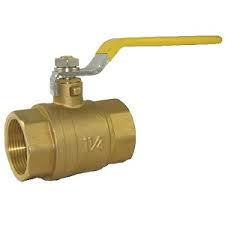
Image Source: Xhval
A Brass Ball valve is favorable for uses that involve high temperatures because of its high melting point. It also has high resistance to corrosion. These characteristics make it an ideal valve for natural gas applications.
Stainless Steel Gas Ball Valve
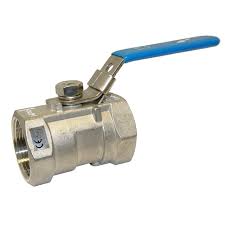
Image Source: Xhval
The advantages of a stainless steel gas ball valve lie in its durability and robustness. It is resistant to both abrasion and corrosion and requires less maintenance compared to its other counterparts. It is also ideal for use in high-pressure and high-temperature applications, as well as, extremely low temperatures.
Full Port Gas Ball Valve
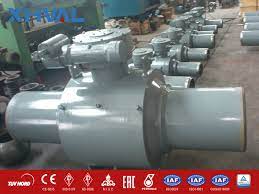
Image Source: Xhval
A Full Port Gas Ball valve maintains the flow according to the pipe’s diameter, sustaining a consistent flow rate throughout the valve. Its design reduces pressure drop and avoids cavitation and build-up.
3 Way Gass Ball Valve
A 3 Way Gas Ball Valve are special because they can may not only be used to shut off flow, but can also be used to switch and combine flow from different origins, and alternate flow to different destinations.
China Gas Ball Valve

Image Source: Xhval
XHVAL Industrial Valve Co., Ltd. is the foremost China Gas Ball Valve supplier that has been in the industry for over three decades. Their products conform to the highest certifications and use top-quality materials to produce a myriad of their different industrial valves.
The company has tons of different valves to choose from. The products they offer include ball valves, gate valves, butterfly valves, globe valves, and many more.
Why Choose XHVAL Ball Valves for Natural Gas Service
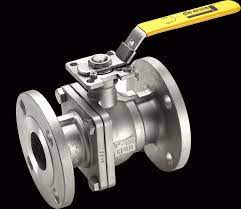
Image Source: XHVAL
XHVAL Valve Co., Ltd, a China ball Valve manufacturer and supplier, has a variety of ball valve types available. Trunnion-mounted and floating ball valves are available for whatever application is required. Stainless, cast, or forged steel, brass, and PVC materials are available and one, two, and three-piece ball valves are also feasible depending on the client’s need.
Ball Valve for Gas: Common FAQs
Assess if a Ball Valve is Rated for Gas
Although ball valves are generally theoretically good to use for gas applications, only certain types are permitted that conform to certain standards. There are natural gas rated ball valves that are made to be used for natural gas and other gaseous substances.
Ball valves often have markings to indicate what applications they are suitable for. It ensures that the ball valves have been tested and fit for certain media.
Knowing what valve markings mean will help you choose the right ball valve for the intended application. Choosing the correct ball valve ensures the safety of the operations. It avoids breakage during high-pressure and high-temperature operations. Ball valve markings can often be found in the ball valve body as numbers and some letters which are explained below.
WOG
WOG refers to Water, Oil, and Gas. Water refers to water itself while oil refers to liquids that are thicker than water and has lubricating qualities. Gas, on the other hand, refers to vaporized liquids but excludes combustible gaseous substances.
CWP
CWP means Cold Working Pressure. Cold Working Pressure is the highest working pressure for the valve in temperatures -20°F to 100°F.
WSP
WSP is Working Steam Pressure and refers to the maximum steam pressure the valve can stand at the highest temperature rating.
What ball valves are approved for natural gas?
A stainless steel gas ball valve may be used for natural gas but clients usually prefer a brass ball valve for gasoline, natural gas, and other combustible materials due to its durability in high-temperature applications.
Are there Other types of Valves for Natural Gas?
Apart from ball valves, there are other valve types that may be chosen for natural gas applications. They exist as different metals and plastic materials depending on the substance contained and the application’s pressure requirements. Aluminum, Brass, Copper, Steel and stainless steel are some of the popular metals used in valves for natural gas, while polymer materials like polyvinyl chloride or PVC and polypropylene or PP are also used in the production of some.
Gas valves are used for both industrial, commercial, and even residential applications which is why it is pretty common and abundant in kinds and variations. The types vary on the specific requirement of their application, and so too do the materials.
The following are some alternate gas valve types Gate or knife valves offer linear motion valves wherein a closure mechanism shuts off the flow of the stream. Globe and pinch valves also feature linear motion devices. Angle valves allow for maximum flow while balancing valves maintains consistent temperature and helps compensate when the pressure drops. Needle valves are tapered and are preferable when pipeline space is limited. Directional valves direct flow to select passages, as do diverter valves. Plug valves, act like a plug, hence their name while a diaphragm valve acts more like a plunger.
Conclusion
There is no question about the suitability of gas ball valves for the use of gaseous substances like natural gas, however, some considerations may be the materials, the markings and their suitability, and the type of gas ball valves, especially since there are a number of choices depending on the specific user requirement.
